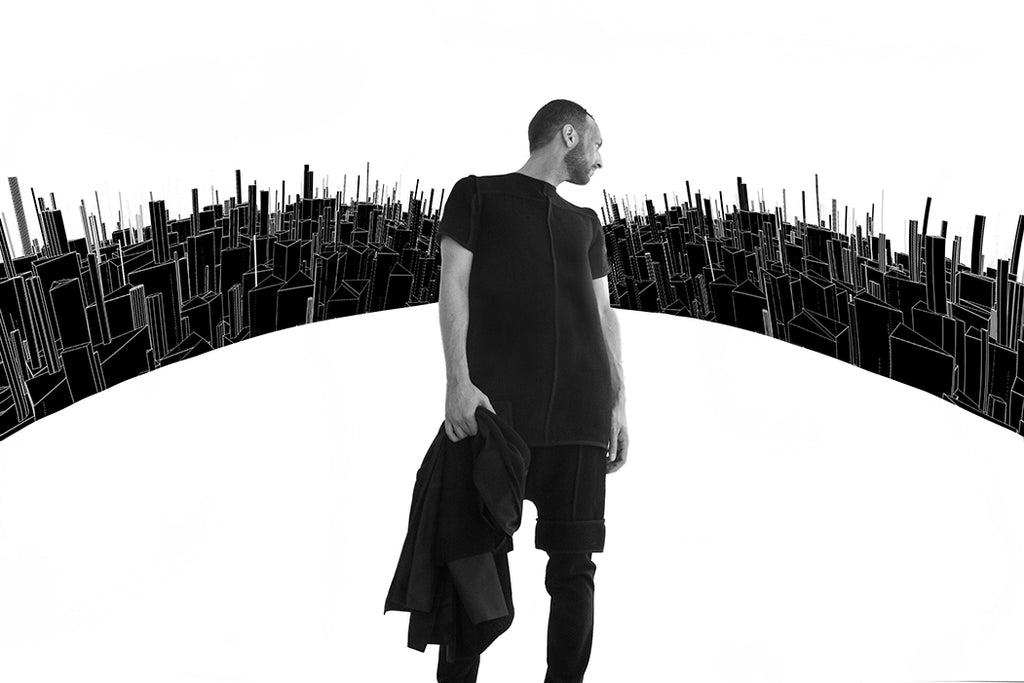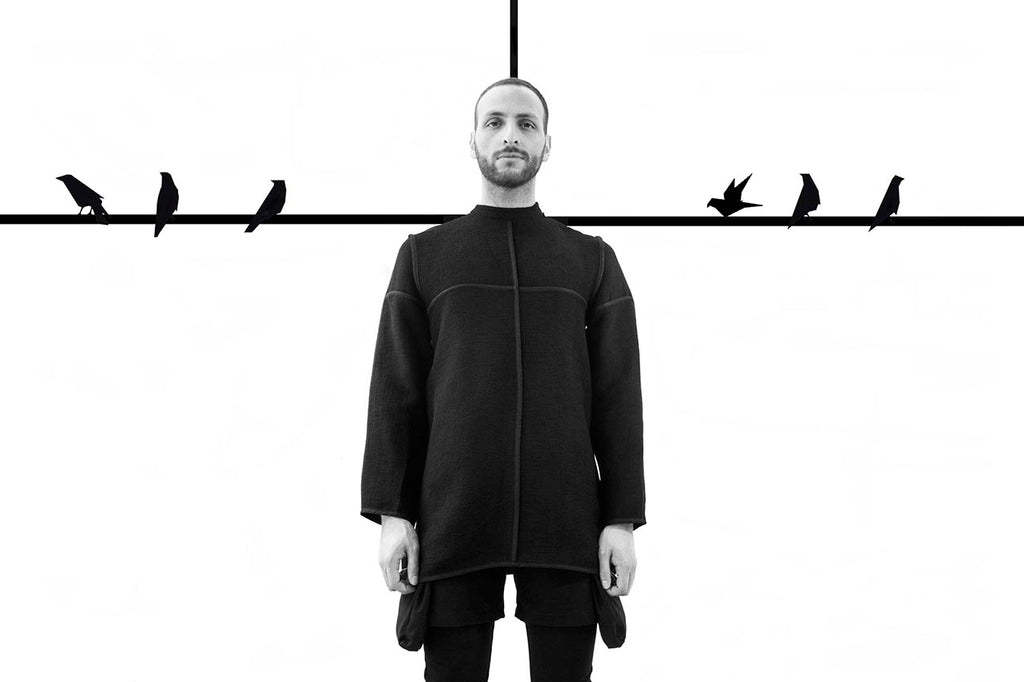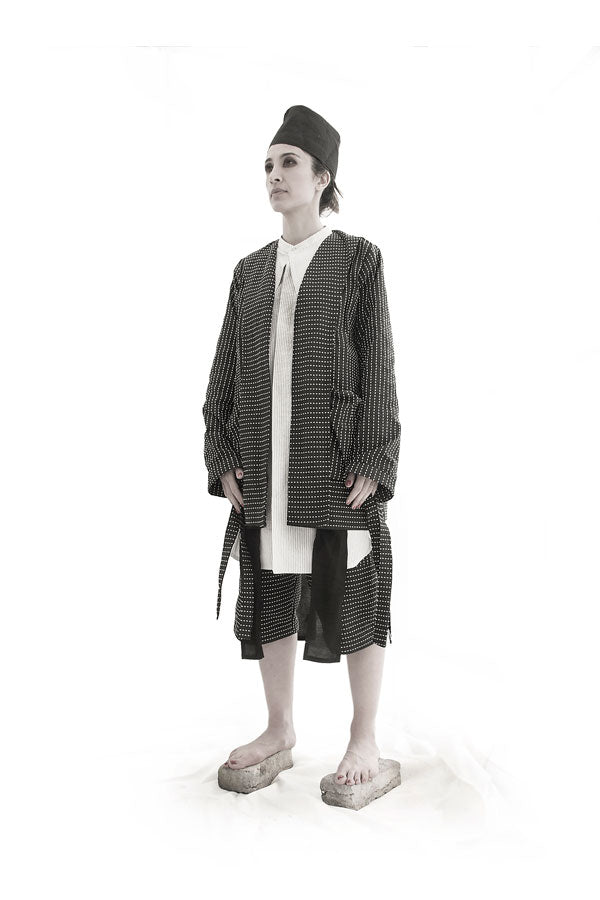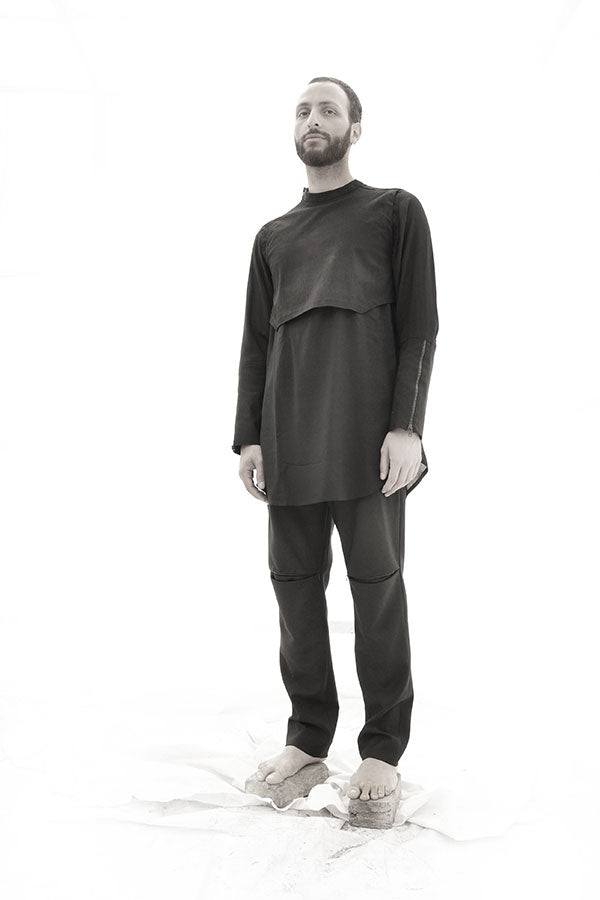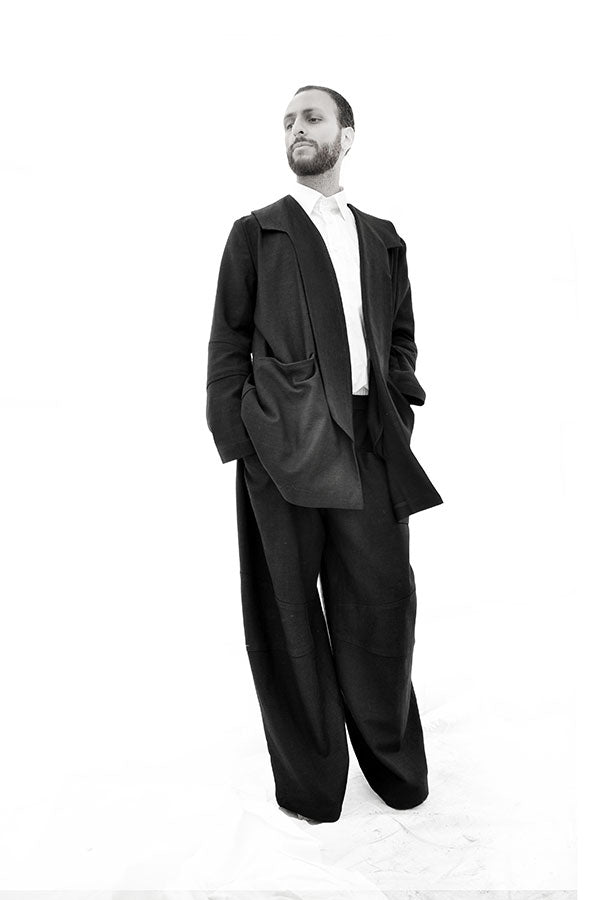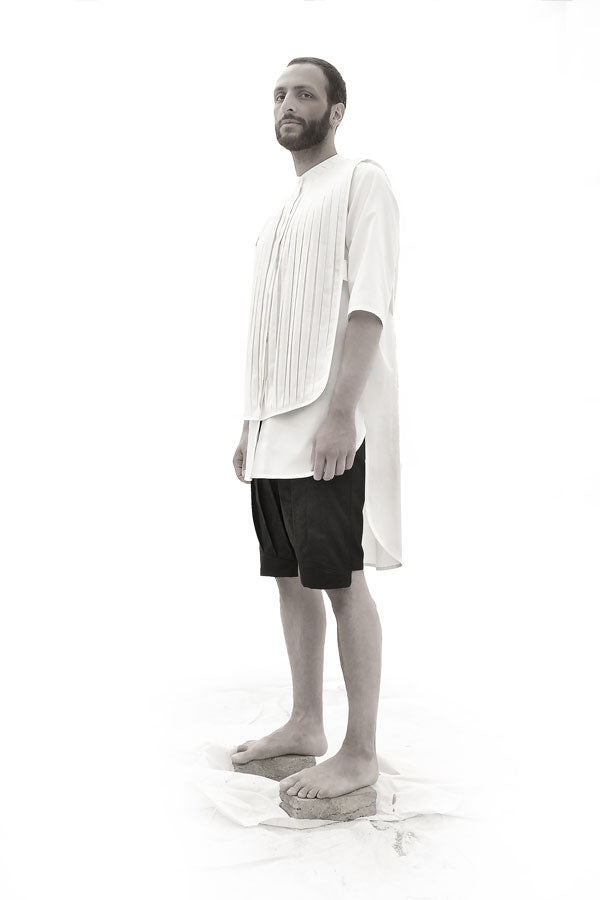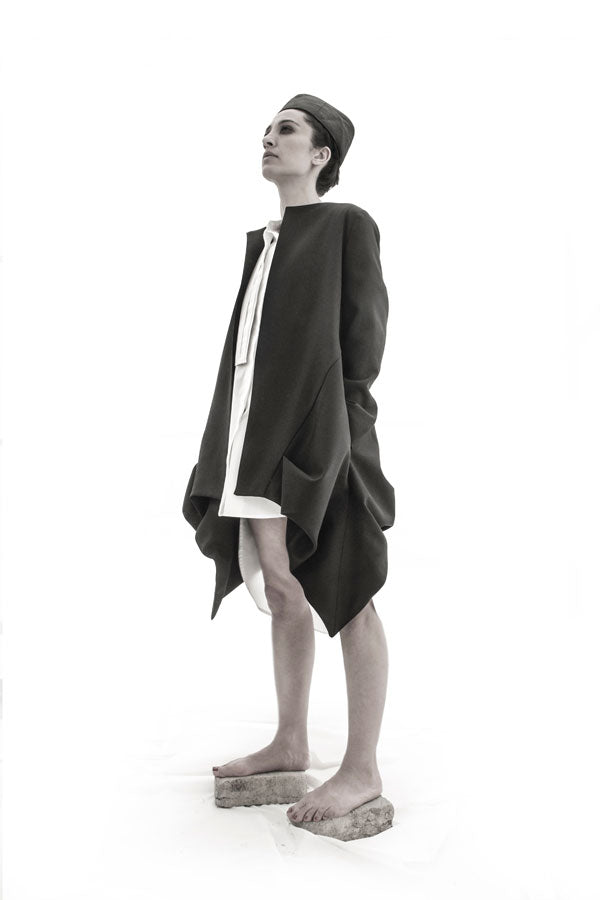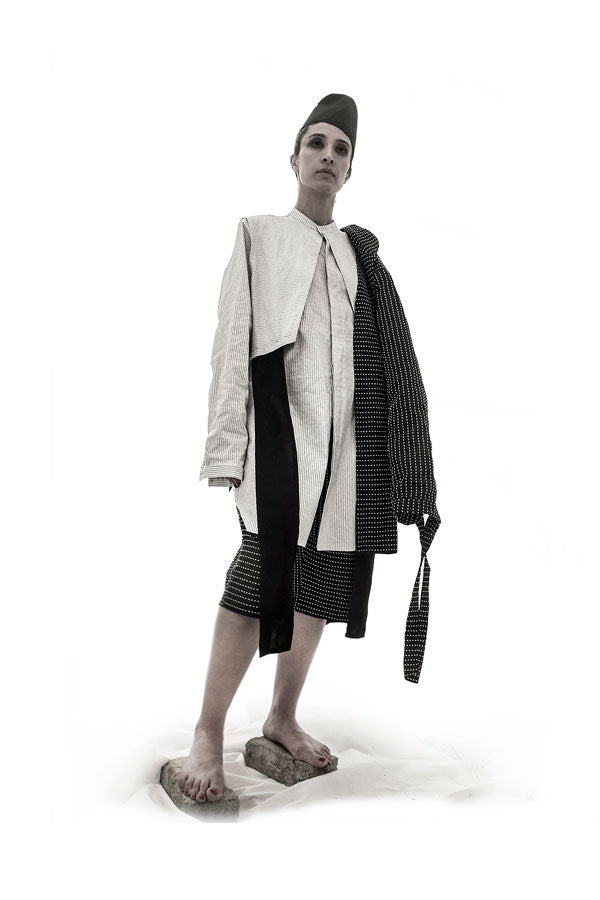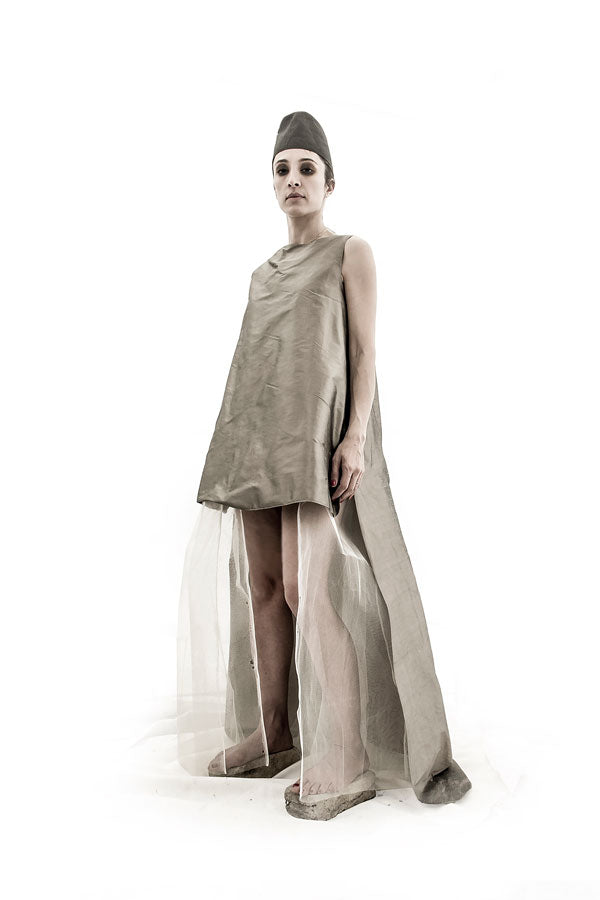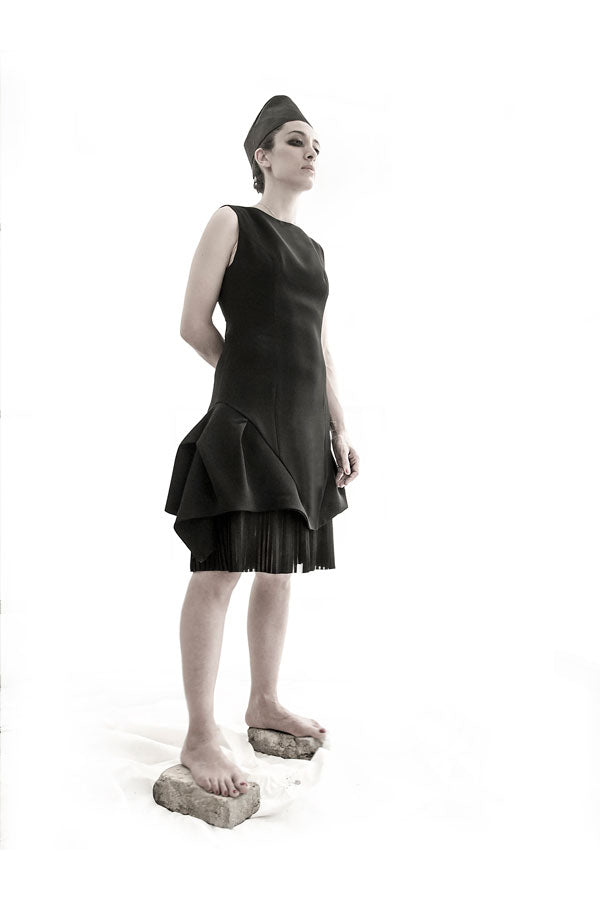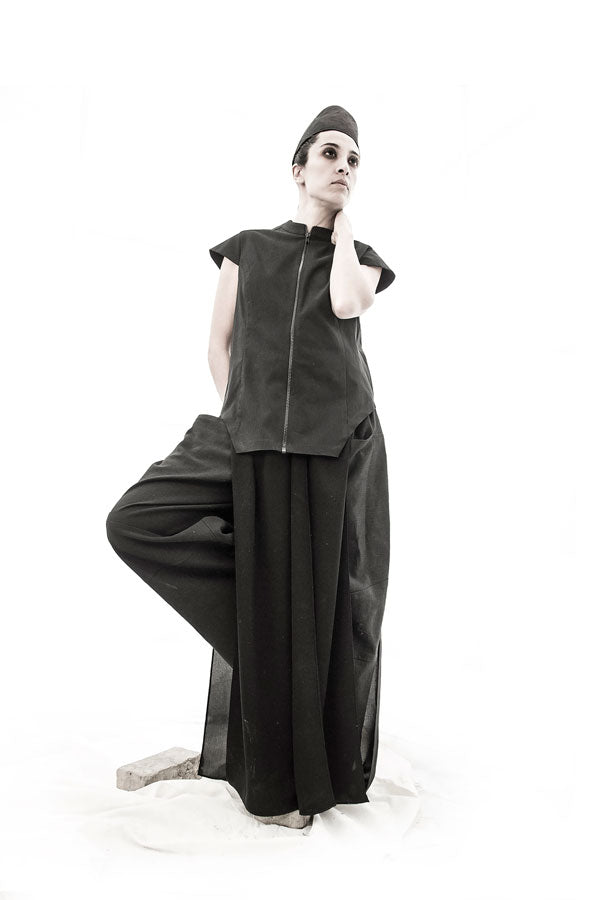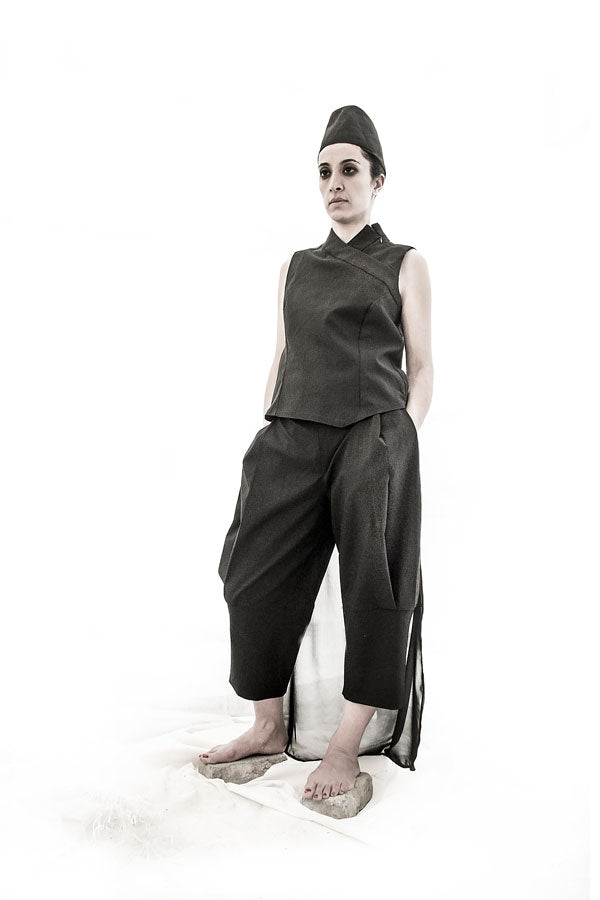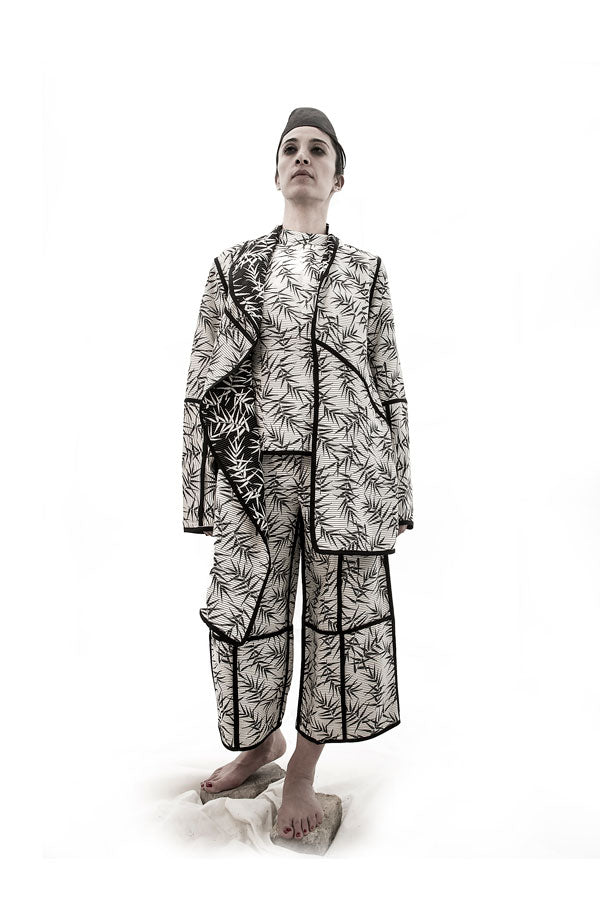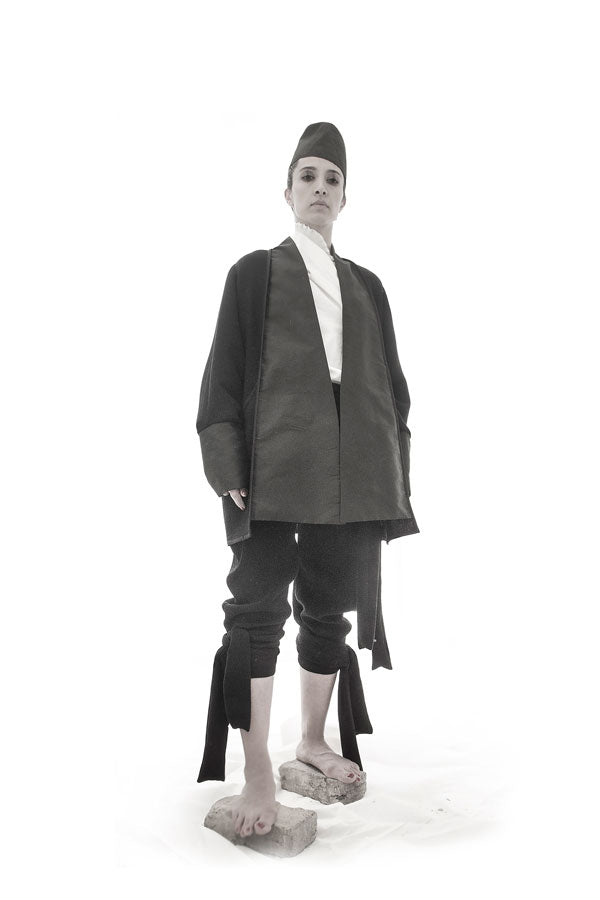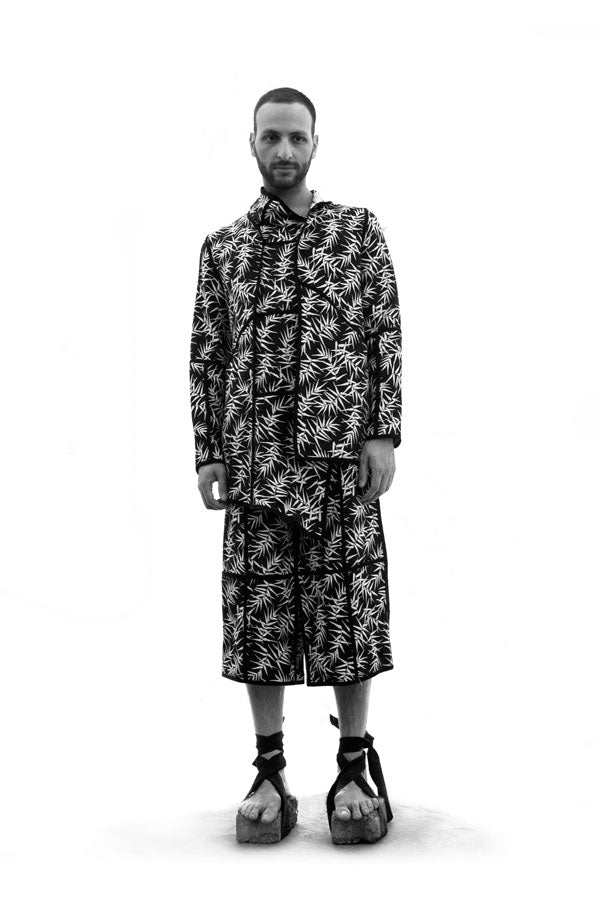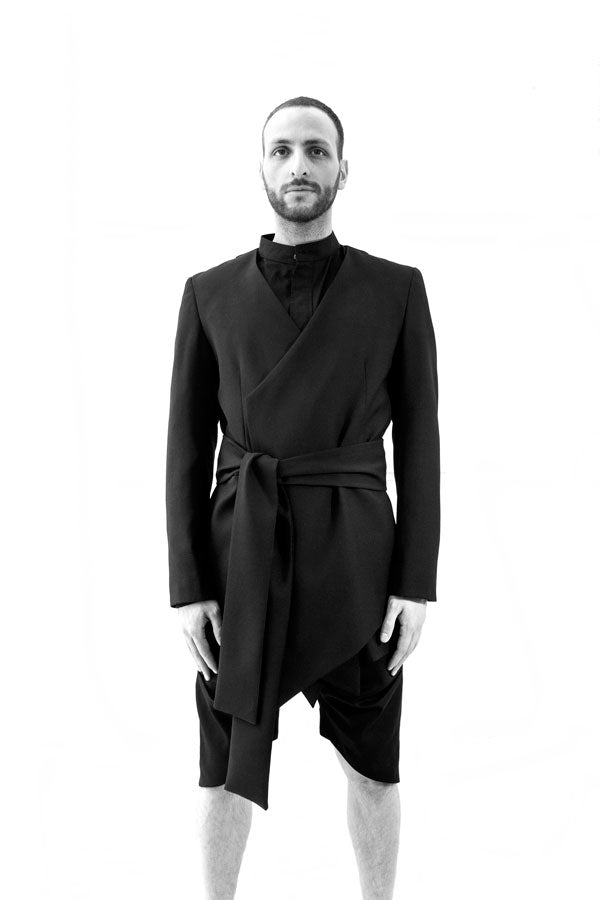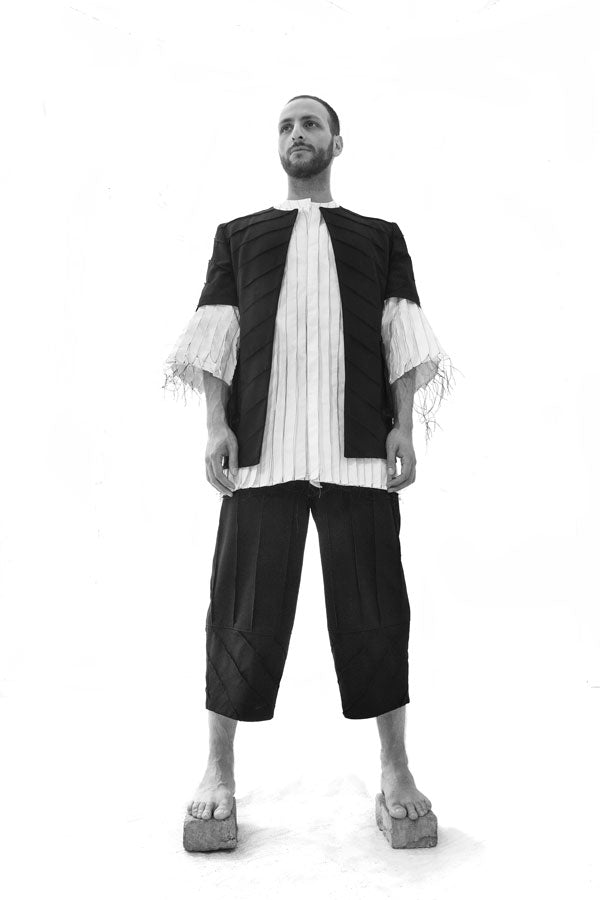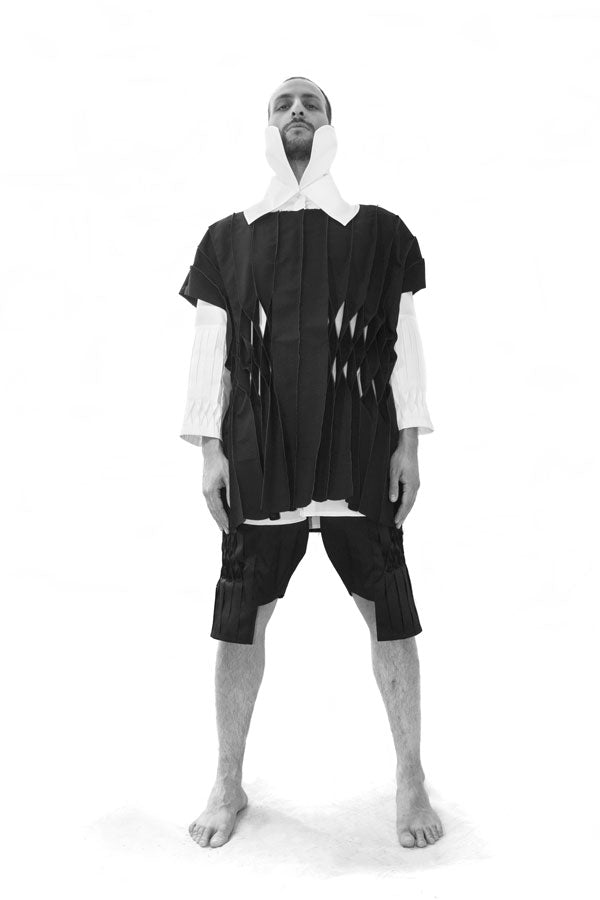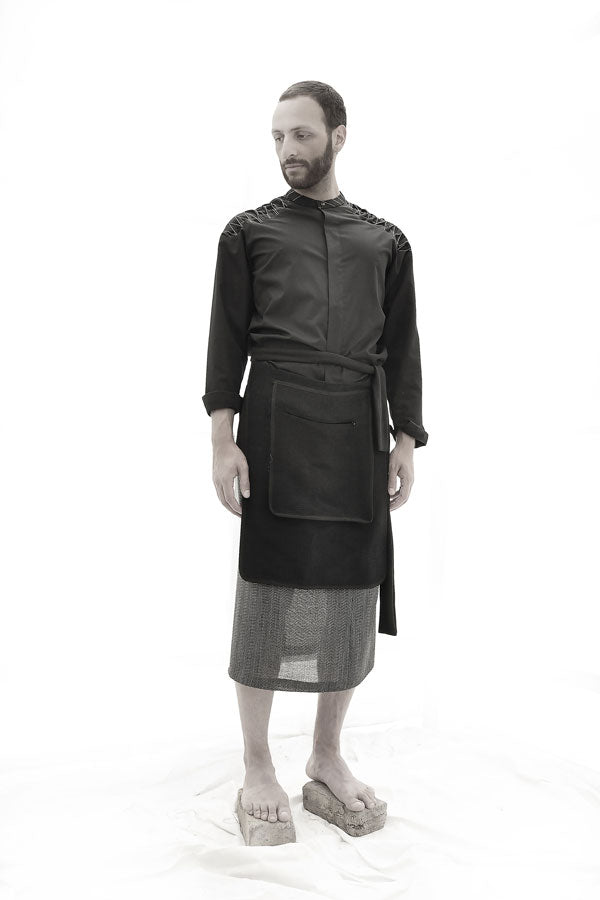
As we look forward to the future with the start of this new year, I thought it would be appropriate to start our Journal entries with something fresh. One of my favourite parts of this journey with Erebus is having the opportunity to meet a wide and varying range of people who are making their marks in the fashion industry and it was a pleasure to meet Iranian designer Reza Nadimi during my travels. I had the chance to speak not only about the collection, but about what it means to be in the creative industries in a country with which I am only familiar with due to the media narrative describing that country (and me being American, those reports are usually not favourable). I was pleasantly surprised to hear that, while still not as progressive as my own sensibilities, creative individuals in Iran can still thrive, so long as you understand and play by the rules. Due to the "modesty regulations" in Iran, some of these images below cannot be shown in that country (apparently, a woman's ankles are off limits) but fortunately for those of us who reside in the Western world, we can appreciate the full artistry of this latest collection by Reza Nadimi.
Reza was born in 1980 and studied Fashion Design in Tehran University graduating in 2005. He was active in the fields of interior and exhibition in design before taking classes on fashion design at Studio Bercot in Paris in 2007. Reza reflects his own inner self and thoughts through his work, which is a product of the world around him. He creates his own self portraits using different fabrics as his canvas.
This latest collection explores the idea of immigrants. Along with these images, I was supplied with a list of all of the mass migrations of the 20th and 21st centuries with some images of those migrants to drive home the idea that as we move, no matter the cause, we do not simply leave everything behind. As we travel, we carry our past and our heritage to be reimagined, redefined and yet reinstated in a new space. From the World Wars through to Rwanda, Serbia, Nicaragua and even now in Syria and Iraq, conflict has led to mass migrations of people. Though even through this, or perhaps despite this conflict, this migration has led to a greater exposure and understanding of one another. I had heard of a good many of these migrations through history classes in school, but when you see them as a list (and quite the long list), you can see that this movement is not only part of our shared history, but continues to be part of our daily experience. Where we are in a world of seemingly closing borders and more introspection, we should seize this opportunity to see how each of us fits into the larger picture of one global human community.
Through the use of traditional prints and fabrics with expert tailoring and breathtaking silhouettes, Reza has created a collection which is an amalgamation of what was, what is and what will be in his life experiences. There are so many of these pieces that use traditional-looking styling all while challenging strict societal norms regarding gender in fashion. While each piece is a striking work of art, just as compelling is the ability of Reza Nadimi to make this statement through the medium of apparel.
